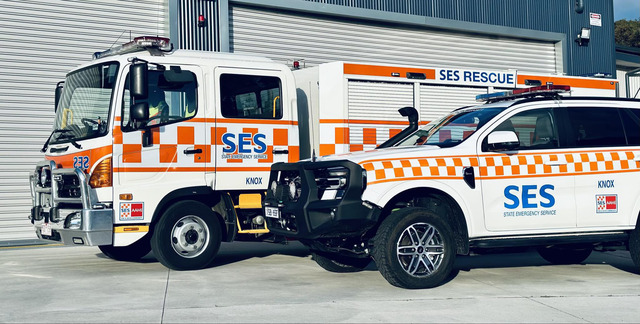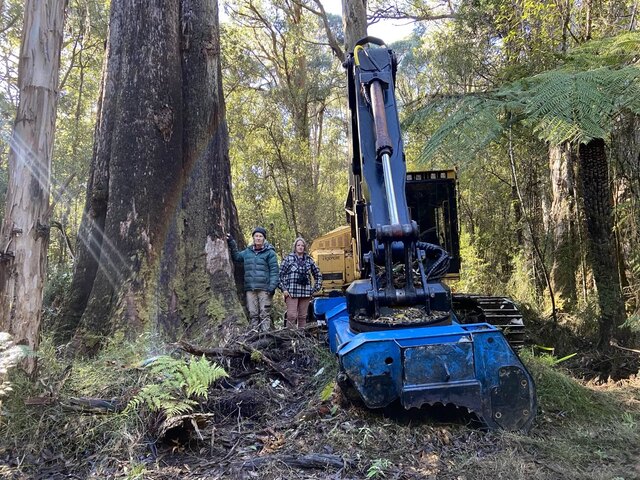Knox State Emergency Services (SES) has received a much-needed funding boost of $150,000 to replace an ageing rescue truck.
The grant is provided through the Volunteer Emergency Services Equipment Program (VESEP), a government initiative that offers financial support to local emergency services.
While this grant will help keep the unit operational, it highlights a far wider issue faced by many volunteer services – ongoing funding shortages that make it difficult to cover basic operating costs, including fuel, utilities, and essential equipment.
Knox SES unit controller Kristian said the state government’s yearly contribution is not enough to cover the unit’s expenses.
“The $30,000 we receive each year is really just a drop in the bucket,” he said.
“For a larger unit like ours, it barely covers our running costs, right now, we’re paying for our own fuel and utilities like electricity and water, and we’re constantly fundraising just to keep everything going.”
Kristian said other emergency services like CFA, receives full funding for their operational costs, something the SES units in Victoria do not.
“We’re all volunteers here, and it would be great if the government could provide more comprehensive support,” he said.
“If we had the proper funding to cover things like fuel and utilities, our volunteers could spend more time on the job rather than having to fundraise just to keep the unit running.”
The $150,000 grant will allow the SES to replace a critical rescue vehicle that is over 20 years old, but there’s still a catch as the unit must contribute $100,000 of its own funds to purchase the new vehicle.
“This funding allows us to replace one of our rescue trucks, which is a huge relief,” he said.
“But we still need to cover the costs of equipping the vehicle with the right tools and getting it operationally ready”
The SES unit also faces ongoing pressure from the increasing costs of running the station and maintaining equipment.
“Just the electricity bill alone is around $12,000 a year, and fuel for the vehicles costs us another $12,000,” Kristian said.
“When you add in the cost of replacing or repairing equipment, the money from the state doesn’t go far, as a result we end up relying on fundraising, like tin rattles and Bunnings barbeques, just to make ends meet.”
He also expressed his concerns about the strain on volunteer time and resources.
“The volunteers are doing amazing work for the community, but they are stretched thin, they’re giving up their time not only to respond to emergencies but also to raise the funds needed to keep our unit going – things would be much easier if we had better financial support from the state,” he said.
While the $150,000 grant is a welcome relief, the funding doesn’t address the broader issue of sustainable support for the SES.
Kristian said without continued and adequate funding, services like theirs could struggle to keep up with growing demand.
“If we didn’t get this grant, we wouldn’t have been able to replace the truck, we would’ve been stuck trying to patch up old equipment and keep things running without the proper resources,” he said.
In response to the ongoing funding challenges, Kristian and other members of the SES are part of a state-wide movement advocating for more government support.
The campaign, which involves volunteers from 20 to 30 other SES units, aims to raise awareness about the financial struggles faced by these critical emergency services.
He’s encouraging the public to learn more about the issue and send letters to their local MPs to show support for better funding.
“The more people that get behind this, the more pressure we can put on the government to make sure volunteer emergency services are properly supported,” he said.
“At the end of the day, we’re all here to help keep the community safe, and we need the resources to do it effectively.”
For now, the Knox SES unit remains focused on getting the new rescue truck operational, but Kristian said with the current funding system, they will continue to face significant challenges.
“We’re lucky this time, but next year we’ll be back to square one, looking for ways to cover our costs and replace ageing equipment,” he said.
“Ongoing support from the government is the only way we’ll be able to keep providing the service the community needs.”







